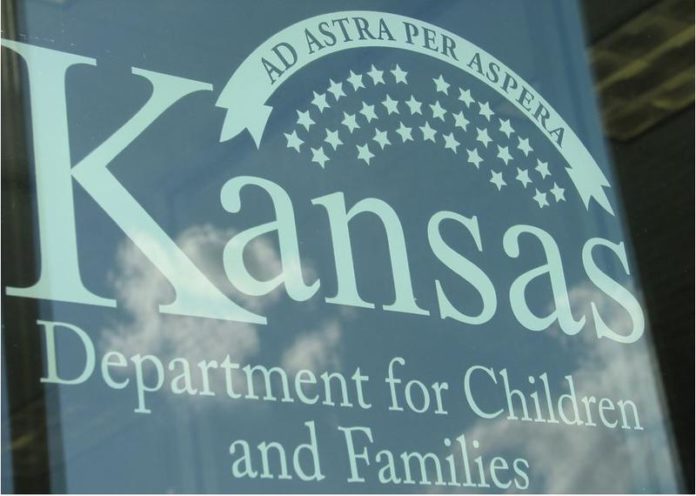(Updated to reflect tweet from House majority leader)
The secretary of Kansas’ child welfare agency had the authority to exempt work requirements for food assistance for some adults under state law, according to the agency’s response to an inquiry from the attorney general.
In a letter to Attorney General Derek Schmidt, a lawyer for the Department for Children and Families explained why the agency is not violating state law by extending food assistance benefits to adults without children who aren’t working.
The five-page letter that was hand delivered Friday said state law gives the DCF secretary the power to dispose or disburse of any kind property including “food stamps or coupons which are given, granted, loaned or advanced to the state of Kansas for social welfare works…”
The federal exemptions that the agency is using to waive the work requirement falls within the scope of state law as “property,” according to the letter written by Corliss Scroggins Lawson, the agency’s acting general counsel.
“The secretary is disposing/disbursing of property (exemptions) given to the state of Kansas for social welfare works…,” the letter states.
Federal law restricts adults ages 18 to 49 without children to three months of assistance within a three-year period if they aren’t working at least 20 hours a week or participating in a federally approved work program or its equivalent.
The Legislature passed a similar law in 2015 that limits food assistance but adds that the state can’t get around the law by using a waiver or program from the U.S. Department of Agriculture.
However, the agency issued a policy memo on May 17 extending the assistance month to month by using exemptions provided for by federal law.
The state has accumulated about 58,000 exemptions that can be applied toward extending the benefit to about 5,500 people.
The state has contended that exemptions are neither a program nor a waiver as spelled out in the law.
Earlier this week, Attorney General Derek Schmidt asked DCF to explain the new policy, suggesting that it appeared to violate state law.
Schmidt’s request came after House Majority Leader Dan Hawkins first raised questions about the administrative directive.
He criticized the agency’s response on Twitter Friday afternoon.
“The administration is continuing to defend its actions with the same worn excuses,” Hawkins tweeted.
“Legal gymnastics won’t get around the fact that they are violating the clear legislative intent of the statute,” Hawkins wrote.
The response from DCF said the agency had used exemptions in the previous administration and that the agency’s 2015 testimony on welfare changes only referenced a “waiver.”
Since the exemptions were not mentioned in the statute nor were they cited in testimony, DCF officials never construed the law to prevent them from waiving the work requirement, the letter said.
The law also said DCF could not use an U.S. Agriculture Department “program” to get around the work requirement. But the agency said the word “program” is vague.
While the Legislature clearly intended to prohibit the DCF secretary from seeking a waiver to extend the timeline set by the work requirement, the word “program” is a not spelled out in the law , the letter stated.
“The key question is what was intended by the inclusion of ‘or program,'” the letter says. “Program is not a defined term.”
The agency said that federal statute makes its clear that discretionary use of the exemptions was not an agriculture department program.
It also noted that exemptions were part of federal law long before the state enacted its law.
“The reasonable conclusion is that if the Legislature intended to prohibit such discretionary use, it would have stated (exemptions) instead of ‘or program,'” the letter said. “It did not do so even though it was very clear about the waiver.”
The agency said it is only a one-time extension that applies to adults who are not eligible to receive food assistance because of the time limit and who were either receiving benefits as of June 30 or reapplied after May 20.
DCF’s extension does not apply to adults with dependents whose eligibility expired before June 30 or failed to reapply.
















